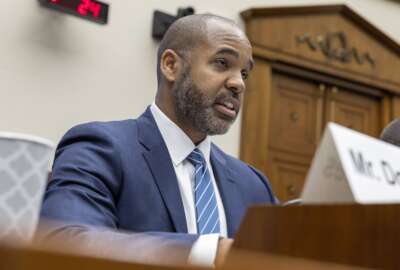Interoperability: surmounting the Tower of Babel
Expectations clash with reality on Capital Hill on the issue of emergency communications interoperability.
wfedstaff | June 2, 2015 7:39 pm
By Max Cacas
FederalNewsRadio
One of the enduring findings of the 9/11 report was the fact that first responders on the ground in New York were unable to communicate readily with reach other in the first hours after the crisis. Congress responded by approving funds for an envisioned nationwide emergency communications system, but now lawmakers are wondering if taxpayers will ever get a truly interoperable system to solve the problem.
One of the big topics on Capitol Hill these days, interoperability was the focus of an oversight hearing by the House Appropriations Subcommittee on Homeland Security. Here’s the crux of the hearing, boiled down to this frustrating reality voiced by Kentucky Republican Hal Rogers, ranking member of the subcommittee, who rankles at the one billion dollars appropriated thus far by Congress to improve first responder interoperability: “Over the last three fiscal years, only 6.4% has been spent. That means there’s more than $997 million that could be out on the streets helping our first responders meet their interoperability needs.”
And just to underscore things, Rogers told the three representatives from the Department of Homeland Security testifying on the issue of interoperability that recent weather related crises in his home state made the ability of first responders to communicate a matter of life and death.
Kentucky, just a month ago, had that terrible ice storm, that covered the entire state. Huge amounts of ice that devastated the state. But the main initial impact was there was no communications. The governor of the state didn’t know if anyone in any part of the state was injured. There was no communications. The towers went down, the wires were broken, electric power was cut off, there was no communications to the rest of the state. And yet this money is laying here, waiting for the state to pick it up.
Rogers wasn’t the only member of the subcommittee with that complaint and a palpable level of frustration. Members of the subcommittee from North Carolina, California, New York and Texas all vented their questions about why interoperability isn’t as far along as it should be after three years.
The answer, says Chris Essid, Director of the Office of Emergency Communications at DHS, is not as cut and dried as one might think.
We’re coordinating with FEMA’s Grants Directorate to do everything we can to inform folks what grants are out there, to get feedback on what could be improved in the grants process so money can be drawn down faster. But some of these projects they’re applying for are very technical in nature. Like procuring a state-wide (communications) system for example. That system purchased in Virginia, that they didn’t spend any (federal interoperability) grant funds on, it took them six years to move from the initial idea to actually purchase equipment.
And Ross Ashley, Assistant Administrator for the Grants Program Directorate at FEMA, says the solution is not as simple as approving huge pots of federal grant money.
Just because the money is sitting in the federal treasury doesn’t mean its not being used. Projects are out there in every state that are being executed today. It just takes time for the states to draw down funding. Some states only draw down funds once a year. They actually reconcile their books, and then draw down from the federal government.
Ashley goes on to say that if the availability of a grant is not carefully timed to the budget process in some states, it is possible that the state would not be eligible for the funds for as long as 23 months.
The consensus among the subcommittee is that DHS and FEMA are making steady, but slow progress on the road to interoperability. North Carolina Democrat David Price, the subcommittee chairman, offered this assessment of the hearing.
The very testimony they’ve given about some of the progress they’ve made raise our expectations for the future, in terms of how these systems are working out and the ability to get them to communities that need them, so that we don’t have these horror stories of disasters occurring and emergency responders not being able to talk to each other.
——
On the Web:
House Appropriations – Subcommittee on Homeland Security
FederalNewsRadio – DHS goes west for first responders
(Copyright 2009 by FederalNewsRadio.com. All Rights Reserved.)
Copyright © 2025 Federal News Network. All rights reserved. This website is not intended for users located within the European Economic Area.





